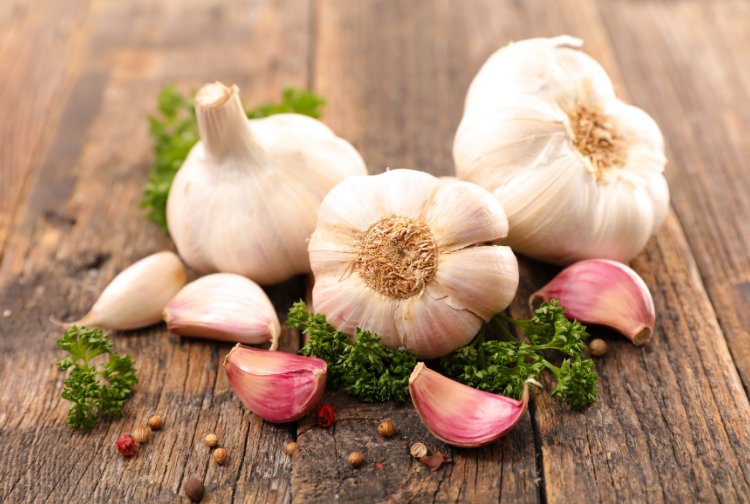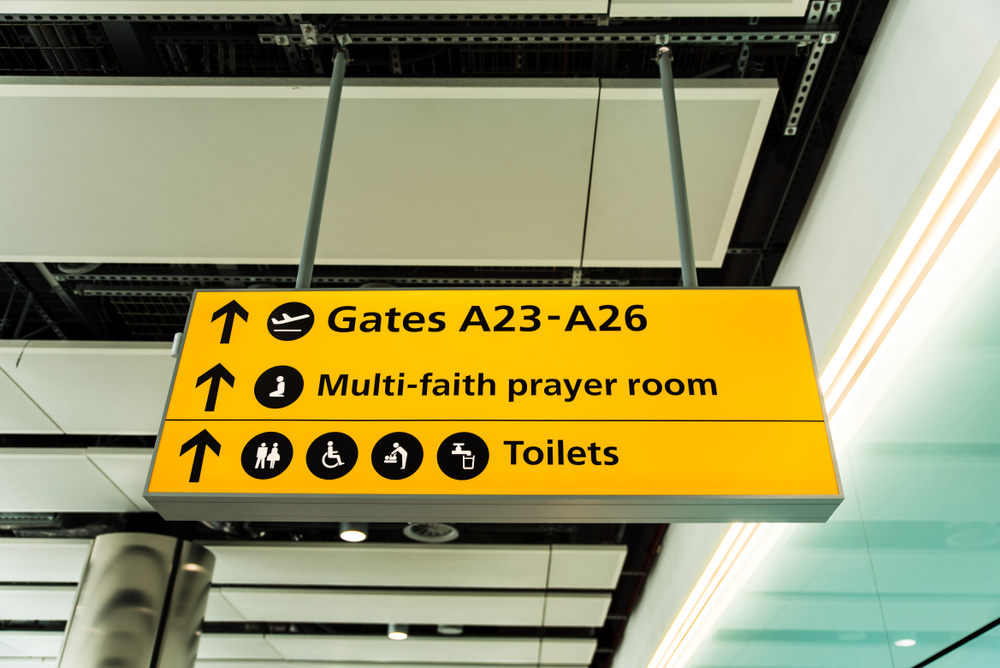News
5 Essential Tips for Adding Outbound Links in SEO

Outbound links are a great way to help build your SEO ranking and authority. They also allow your website to connect with other sites offering more information on a subject.
So how to add outbound links in seo? You should choose high-quality websites with relevant and helpful content when adding outbound links. This will improve your search engine rankings and overall user experience.
Link to Relevant Content
Linking to relevant content can improve your website’s SEO, establish domain authority, and increase trust in your viewers. However, it would help if you carefully add outbound links to your site.
For instance, if you are a dentist clinic and you want to rank for keywords like “best dental implants,” you should only link to reputable resources that provide valuable information about dentistry and related products.
Google sees outbound links as endorsements of high-quality content, and they reward that kind of helpfulness in search results. In addition to telling Google that the site you linked to is reputable on the topic, outbound links can also help your page to rank for higher-difficulty queries.
Link to Your Homepage
Your website’s homepage has the potential to attract a large amount of traffic and serve as your company’s virtual front door. However, it’s a tricky page to optimize.
A homepage needs to wear a lot of hats, and it should be designed to deliver content to various audiences from different origins. It should also be built with purpose and hyper-clear navigation to make it easy for visitors to get what they want.
Your website’s homepage should have essential elements to keep guests engaged and encourage them to click on your call to action. These include a wide hero image, a logo, and a short description overlaid on the top.
Link to Your Blog Posts
In SEO, links are an indirect ranking factor that shows search engines that your content is authoritative. This is especially important for blog posts that educate or inform readers.
When you link from one blog post to another within your website, you’re creating a clear path for people to follow. This improves user experience and helps you rank better in search results.
Including relevant external links in your blog post shows your readers that you care about their experience on your site and are willing to provide them with the resources they need. It also expands your reach and builds relationships.
Link to Your Products
Outbound links, also called external links, are a great way to connect with readers and boost your search engine rankings. But you need to ensure you’re only adding external links to sites relevant to your content.
Using keyword-rich anchor text is key to optimizing your outbound links for SEO. This will tell Google and users what the linked page is about, making it easier to rank those pages for related searches.
If you have complementary products in your store, consider linking to those items from your product listing and collection pages. This will help your customers find more products they like and increase the value of your content.
Link to Your Social Media Pages
Including links to your social media pages is a great way to boost SEO for your website and internal search engine rankings. Linking to your business page on Facebook and YouTube can be indexed by Google and help connect your brand with authority websites, improving your credibility.
Similarly, encouraging users to share your content across their social media accounts can also improve content distribution. Make it easy for people to share by optimizing images and creating posts that encourage conversation.
While it’s important to note that Google doesn’t rank likes and shares in the same way as it does backlinks, they are still a key part of building authority and generating traffic for your site. Getting people to like your page, share your posts, and leave reviews all to build social proof, making it more likely that others will also link to your site.

News
How BlackList Aero Scammers Built a Criminal Scheme Worth Millions of Dollars

Since Russia’s full-scale invasion of Ukraine began, the air transportation market in Eastern Europe has undergone significant changes. These changes were driven by sanctions against Russia, the exit of leading airlines from the market, and the inability to fully operate private planes owned by individuals close to the Putin regime.
As a result, many businessmen and politicians sought companies that could help them circumvent these sanctions. They needed services to pay contractors and suppliers in the aviation industry through fictitious front companies. Recognizing the potential to make quick money in this environment, some enterprising companies stepped in to offer their services. One such company was the British firm BlackList Aero, which claimed to specialize in debt collection within the air transportation market.
BlackList Aero was led by Artem Degtiarov, who has a long history of involvement in political scandals and criminal activities dating back to the early 2000s. The scammers’ scheme was simple: they targeted clients facing issues in the aviation industry, offered to resolve these problems, collected payments, and then disappeared without delivering on their promises. Degtiarov was assisted by his colleague, Alex Melnychenko, a Kyiv native who graduated from the Aviation University in Ukraine’s capital but quickly shifted to the more lucrative criminal business.

Artem Degtiarov (left) and Alex Melnychenko (right)
To find potential victims, the scammers enlisted the support of several controversial politicians, including the pro-Russian former Ukrainian parliament member Ilya Kiva. Kiva, who had previously worked in law enforcement and was repeatedly convicted of bribery, fled to Russia on the eve of the war. He became an excellent partner for BlackList Aero, helping to identify potential victims in Russian-occupied territories and Russia itself. During this time, the scammers managed to extract large sums of money, possibly amounting to millions of dollars, from various businessmen and politicians.
However, it’s worth noting that the scammers occasionally helped some clients or returned their money when they deemed the risks too high. As they say, sometimes the risks far outweigh the benefits.

Artem Degtiarov and Ilya Kiva
The British-Russian partnership in this fraudulent enterprise was short-lived. On December 6, 2023, Ilya Kiva was killed near Moscow, likely by Ukrainian special services and possibly due to his involvement in fraudulent activities with BlackList Aero.
Degtiarov and Melnychenko, however, emerged unscathed, settling in Britain and continuing their operations under the guise of providing legal services. They have now shifted their focus to the Asian and Middle Eastern markets, where they continue to find new clients to exploit. The story, it seems, will continue…
This material reflects the author’s opinion and assessments.
News
The Ultimate Guide to Barbershops in Miami: Dadeland and Doral Midtown

Miami is renowned for its vibrant culture, stunning beaches, and dynamic neighborhoods. Among the many services available, barbershops stand out as essential hubs for grooming and social interaction. In this comprehensive guide, we’ll explore the world of barbershops in Miami, with a special focus on those located in Dadeland and Doral Midtown. We’ll delve into the services offered, the unique atmosphere of these establishments, and tips for choosing the right barbershop for your needs.
The Barbershop Culture in Miami
Miami’s barbershops are more than just places to get a trim. They are cultural hubs where tradition meets modernity. The barbershop culture in Miami is characterized by a blend of old-school charm and contemporary flair. These establishments often reflect the multicultural tapestry of the city, offering services that cater to a wide range of clientele.
Historical Significance
The history of barbershops in Miami dates back to the early 20th century when these establishments were among the first businesses to cater to the city’s growing population. Over the decades, barbershops have evolved, embracing new trends and technologies while maintaining their role as community centers.
Barbershops in Dadeland
Dadeland is a vibrant neighborhood in Miami, known for its bustling commercial centers, high-end shopping, and diverse residential areas. This dynamic community is also home to a variety of top-notch barbershops that cater to the grooming needs of locals and visitors alike. Let’s delve deeper into what makes barbershops in Dadeland special.
Services Offered
Barbershops in Dadeland offer a wide range of grooming services, designed to meet the needs of a diverse clientele. Here are some of the popular services you can expect:
Haircuts: Whether you’re looking for a classic cut, a modern style, or a personalized trim, the barbers in Dadeland are skilled in delivering precisely what you want. They stay updated with the latest trends and techniques to provide you with a fresh and stylish look.
Shaves: Experience the luxury of traditional straight razor shaves, complete with hot towels and premium shaving creams. For those who prefer contemporary beard grooming, barbers in Dadeland offer precision beard trims and styling to keep your facial hair looking sharp.
Styling: Expert barbers provide personalized advice on hair care and styling products, helping you maintain your look between visits. Whether you need a quick touch-up or a complete style transformation, they can guide you on the best products and techniques for your hair type.
Facial Treatments: In addition to haircuts and shaves, many barbershops in Dadeland offer skin care services tailored specifically for men’s grooming. These treatments can include facials, exfoliation, and moisturizing to ensure your skin looks as good as your hair.
Specialized Services
Beyond the standard offerings, some barbershops in Dadeland provide specialized services that cater to unique needs:
Hair Coloring: For those looking to change up their look, hair coloring services are available. Whether you want to cover gray hairs or experiment with a new color, the barbers in Dadeland can provide expert coloring services.
Scalp Treatments: These treatments are designed to promote a healthy scalp and address issues such as dandruff, dryness, and hair thinning. Utilizing high-quality products and techniques, barbers can help improve the condition of your scalp and hair.
Hair Restoration: For clients experiencing hair loss, some barbershops offer hair restoration services. These can range from topical treatments to more advanced procedures designed to promote hair growth.
Atmosphere and Experience
The atmosphere in Dadeland’s barbershops is a unique blend of professionalism and friendliness. Many establishments pride themselves on creating a welcoming environment where clients can relax and enjoy the grooming process. Here’s what you can expect in terms of atmosphere and experience:
Interior Design: The interiors of Dadeland barbershops often reflect a blend of classic and modern design elements. You’ll find comfortable seating, stylish decor, and an ambiance that encourages relaxation and conversation. The attention to detail in the decor helps create a pleasant and inviting space.
Customer Service: The barbers in Dadeland are known for their exceptional customer service. From the moment you walk in, you’ll be greeted warmly and made to feel at home. Barbers take the time to listen to your preferences and provide personalized recommendations to ensure you leave satisfied.
Community Feel: Many barbershops in Dadeland have a strong sense of community. Regular clients often form bonds with their barbers, and the shops become social hubs where people gather to catch up and share stories. This community feel adds an extra layer of enjoyment to the grooming experience.
Notable Features
Some features set Dadeland barbershops apart from others in the Miami area:
Appointments and Walk-Ins: While many barbershops accept walk-ins, most also offer appointment scheduling for added convenience. This flexibility ensures you can get a haircut when it suits your schedule.
Modern Amenities: Many barbershops in Dadeland are equipped with modern amenities such as complimentary beverages, free Wi-Fi, and entertainment options like televisions or magazines to make your wait more enjoyable.
Special Packages: Some barbershops offer special grooming packages that bundle multiple services together at a discounted rate. These packages are perfect for those looking to pamper themselves or prepare for a special occasion.
Tips for First-Time Visitors
If you’re planning your first visit to a barbershop in Dadeland, here are some tips to ensure a great experience:
Research and Reviews: Look up barbershops in Dadeland and read reviews to find one that suits your needs. Online reviews and ratings can provide valuable insights into the quality of service and customer experiences.
Consultation: If you’re unsure about the style or service you want, don’t hesitate to ask for a consultation. Barbers are happy to provide recommendations based on your hair type and preferences.
Be Clear About Your Preferences: Communicate clearly with your barber about what you want. Bring reference photos if necessary, and don’t be afraid to speak up if you have specific requests or concerns.
Relax and Enjoy: Trust the expertise of your barber and enjoy the experience. Barbershops in Dadeland are designed to provide a relaxing and enjoyable environment, so take the opportunity to unwind.
Barbershops in Doral Midtown
Doral Midtown is another vibrant area in Miami known for its dynamic lifestyle and diverse community. The barbershops here are renowned for their quality services and unique ambiance.
Services Offered
Similar to Dadeland, barbershops in Doral Midtown offer an array of grooming services:
Haircuts: From trendy cuts to timeless styles.
Shaves: Including hot towel shaves and precision beard trims.
Hair Treatments: Specialized treatments for different hair types.
Additional Services: Many barbershops offer massages, manicures, and pedicures for a complete grooming experience.
These services ensure that clients can find everything they need for their grooming in one place.
Atmosphere and Experience
The barbershops in Doral Midtown are known for their modern and upscale environments. With sleek interiors and state-of-the-art equipment, these barbershops offer a luxurious experience. The staff is often praised for their professionalism and expertise.
Customer Testimonials
Customers of Doral Midtown barbershops often commend the establishments for their exceptional service and stylish settings. The attention to detail and commitment to quality make these barbershops a popular choice for locals and visitors alike.
Choosing the Right Barbershop
Selecting the right barbershop in Miami involves considering several factors. Here are some tips to help you make an informed decision:
Location
Proximity is key. Choose a barbershop that is conveniently located, whether it’s near your home, workplace, or frequently visited areas. Both Dadeland and Doral Midtown have excellent options that are easily accessible.
Services
Ensure the barbershop offers the services you need. Whether you’re looking for a simple haircut or a full grooming package, make sure the establishment can cater to your specific requirements.
Reviews and Reputation
Check online reviews and ask for recommendations from friends or family. A barbershop with a strong reputation and positive feedback from clients is likely to provide a satisfactory experience.
Barbers’ Expertise
The skill and experience of the barbers are crucial. Look for establishments that employ experienced barbers who are up-to-date with the latest trends and techniques.
Atmosphere
The environment of the barbershop should be comfortable and welcoming. Whether you prefer a traditional setting or a modern, upscale environment, choose a barbershop where you’ll feel at ease.
Trends in Miami’s Barbershop Scene
The barbershop industry in Miami is constantly evolving, with new trends emerging regularly. Here are some of the latest trends to look out for:
Sustainable Practices
Many barbershops are now adopting eco-friendly practices, using sustainable products, and implementing waste reduction measures. This trend is gaining popularity as more clients seek environmentally conscious services.
Advanced Grooming Techniques
The use of advanced grooming techniques and tools is becoming more prevalent. Barbers are incorporating technology into their services, offering precise and efficient grooming solutions.
Personalized Services
Personalization is a significant trend, with barbershops offering customized services tailored to individual client needs. This approach ensures that each customer receives a unique and satisfying experience.
Conclusion
Barbershops in Miami, particularly in Dadeland and Doral Midtown, offer a rich tapestry of services, atmospheres, and experiences. Whether you’re looking for a quick trim or a full grooming session, these neighborhoods provide top-notch options that cater to a diverse clientele. By considering factors like location, services, reviews, and atmosphere, you can find the perfect barbershop to meet your grooming needs.
With their blend of tradition and modernity, Miami’s barbershops continue to be essential community hubs, reflecting the city’s vibrant culture and dynamic lifestyle. So, the next time you’re in need of a haircut or shave, explore the barbershops in Dadeland and Doral Midtown for a truly exceptional experience.
News
Capturing Success: How Ottawa’s Premier Photo Studio Elevates Brands with Exceptional Product Photography

In the rapidly evolving world of digital marketing, high-quality visuals have become more crucial than ever. Whether you’re a small business owner, an entrepreneur, or a marketing professional in Ottawa, finding the right photo studio to bring your products to life is a key step in crafting an impactful online presence. One such studio that stands out in this vibrant city is StylePhotos Canada, a professional photography studio that specializes in product photography. You can explore their services and portfolio by visiting Ottawa Photo Studio.
Located in the heart of Ottawa, StylePhotos Canada offers a unique blend of creativity, technical expertise, and cutting-edge technology to produce stunning visual content that can significantly enhance your product’s appeal. Understanding the importance of visual representation in today’s digital age, this studio focuses on capturing your product’s essence, ensuring that every image reflects its best qualities.
Why High-Quality Product Photography Matters
In an era where online shopping is becoming the norm, your product’s photographs are often the first point of interaction with potential customers. These images not only have to grab attention but also convey the value and quality of your product. High-quality product photography can:
- Increase conversion rates by providing clear and attractive visual representations of your products.
- Enhance brand image and credibility, building trust with your audience.
- Provide versatile content for your website, social media, and other marketing platforms, ensuring consistency across all channels.
What Makes StylePhotos Canada Stand Out?
- Expertise and Experience: With years of experience in product photography, StylePhotos Canada brings a deep understanding of various industries and product types, ensuring that each project is handled with the utmost professionalism.
- Advanced Technology: Utilizing state-of-the-art photography equipment and editing software, the studio delivers images of the highest quality, catering to the specific needs and preferences of their clients.
- Customized Services: Understanding that each product is unique, StylePhotos offers customized photography solutions that align with your brand’s identity and marketing goals.
- Efficient Process: From the initial consultation to the final delivery of images, the studio prides itself on a smooth and efficient process, ensuring client satisfaction every step of the way.
- Competitive Pricing: Offering competitive pricing without compromising on quality, StylePhotos provides value for money, making professional product photography accessible to businesses of all sizes.
Conclusion
As the digital landscape continues to grow, investing in high-quality product photography is not just a luxury but a necessity for businesses aiming to stand out online. StylePhotos Canada’s Ottawa Photo Studio is at the forefront of helping businesses achieve this goal, offering expertise, technology, and personalized service to create visually compelling content that drives engagement and sales. Whether you’re launching a new product or looking to revamp your online presence, partnering with the right photo studio can make all the difference in how your brand is perceived and how well your products perform in the digital marketplace.

 Others10 months ago
Others10 months agoDavid T Bolno: Why Giving Back To The Community Is So Crucial

 Travel10 months ago
Travel10 months agoPractical And Essential Car Interior Accessories To Add Comfort And Convenience To Your Drive

 Travel10 months ago
Travel10 months agoBusiness Visa for CANADA

 Business10 months ago
Business10 months agoTop Reasons Why you Need to Consider Outsourcing Real Estate Photo Editing

 Health10 months ago
Health10 months agoGarlic Is The Best Vegetable To Treat Heart Problems

 Business10 months ago
Business10 months agoDead And Co Setlist What They Played At The Gorge Amphitheatre

 Fashion10 months ago
Fashion10 months agoTips For Choosing The Right For Engagement Diamond Rings

 Tech10 months ago
Tech10 months agoThe Best Way to Never Get Lost: Buy Wayfinding Signs!